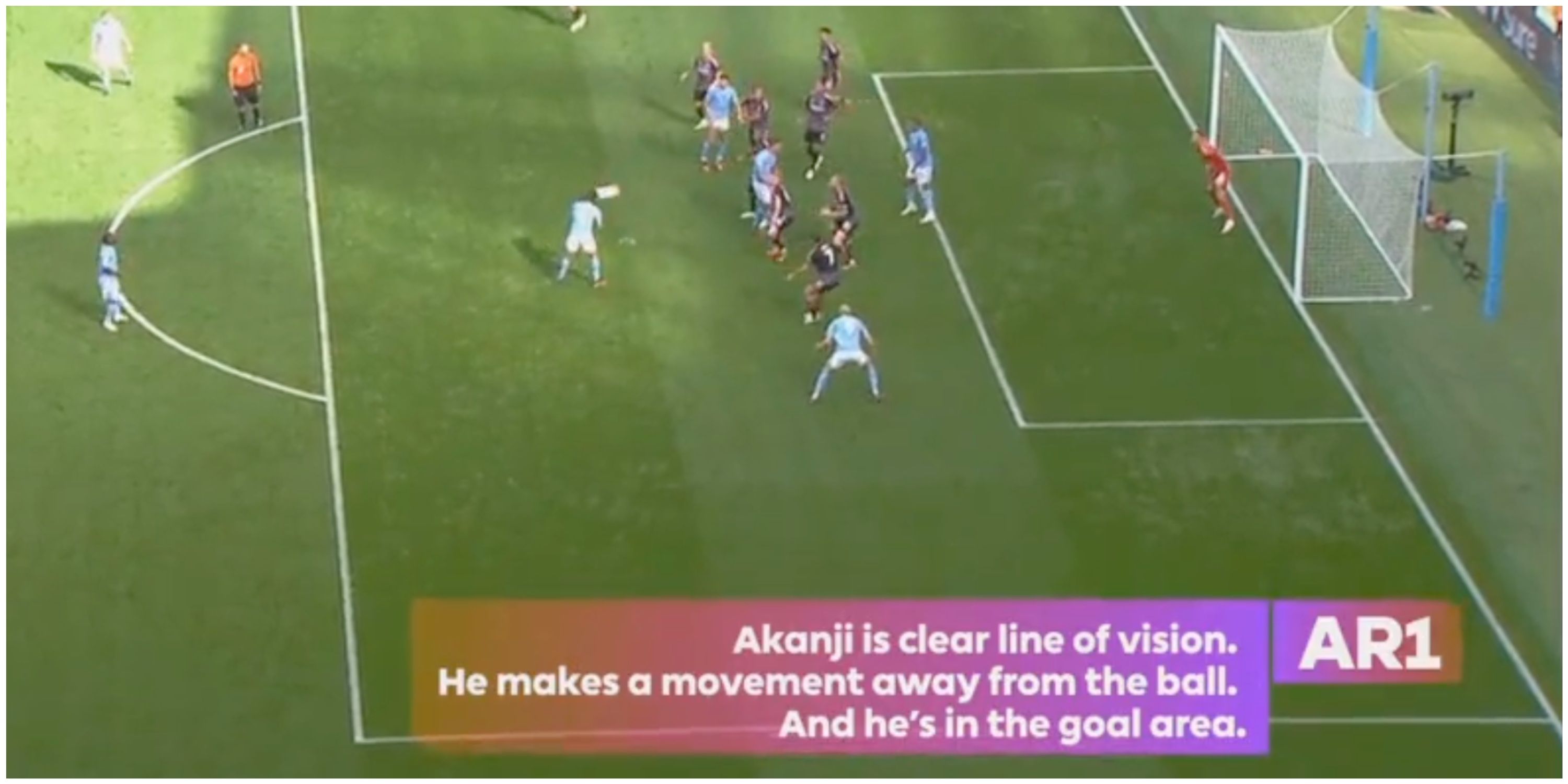Highlights
- Football fans can now get a better understanding of VAR decisions through the new show Match Officials Mic'd Up, produced by the Premier League.
- VAR, although controversial, aims to ensure correct decisions are made, but it does make mistakes, as shown in the controversial goal by Nathan Ake for Man City against Fulham.
- While the show provides much-needed clarification on refereeing decisions, it also highlights that VAR may be ultimately pointless if it can't consistently get decisions right.
Football fans can rejoice somewhat as VAR decisions are finally being explained to us in a new midweek programme called Match Officials Mic'd Up. The show, which is produced by the Premier League and broadcast on both Sky Sports and TNT Sports, aims to give the viewers at home a better understanding of the thought process of both on-pitch referees and assistants, and the VAR officials at Stockley Park in west London.
VAR was introduced to the Premier League in the 2019/20 season. It was originally a concept invented by the KNVB (Dutch FA) in the early 2010s, and it was first trialled all the way back in the 2012/13 season during some of their Eredivisie games. It is an incredibly controversial addition to the game, with some arguing that it infringes on the ability of a fan to enjoy the game free from technology, and some arguing that it is necessary to make sure correct decisions are constantly given.
The issue with the second line of the argument, however, is that VAR does indeed get it wrong, with one of the incidents shown in Match Officials Mic'd Up demonstrating this perfectly.
Nathan Ake's controversial goal in Man City vs Fulham
In their recent fixture with Fulham, Manchester City scored a goal which looked to be a relatively clear offside. However, the goal was given, which at the time put them 2-1 in front.
Defender Nathan Ake had a goal ruled as fair despite an obvious interference from fellow defender Manuel Akanji, who was very clearly standing in an offside position and blocking the vision of Fulham goalkeeper Bernd Leno. The ball did not touch Akanji, it must be said, and he did make an attempt to move out of its path, but it bounced very close to him, so it should have been ruled out according to Howard Webb, who is the head of PGMOL, the body responsible for refereeing games in English professional football.
VAR and match official Michael Oliver made the case that it was a goal as Akanji's movement and position did not impact Fulham goalkeeper Leno's ability to make a save. However, Webb argued that it did have an impact on the German as he appeared to hesitate, with Webb stating that he was potentially waiting for a deflection off Akanji.
Video: VAR audio for Nathan Ake's goal vs Fulham
This was reminiscent of the Manchester derby last season where Marcus Rashford was also judged to be not offside, despite having a fairly similar impact on the ball that Akanji did here.
Ultimately, this programme is extremely refreshing as for as long as VAR has existed, football fans have wanted clarification and insight into refereeing decisions. However, what it truly shows is that VAR is ultimately pointless. If it can't get decisions correct, then it isn't doing its job, and you might as well leave it up to the on-pitch officials to continue making their own decisions.
It is most likely too late to admit defeat with VAR, but hopefully moving forwards, hopefully, this programme can help to ease fans' minds about decisions that they are confused about.
